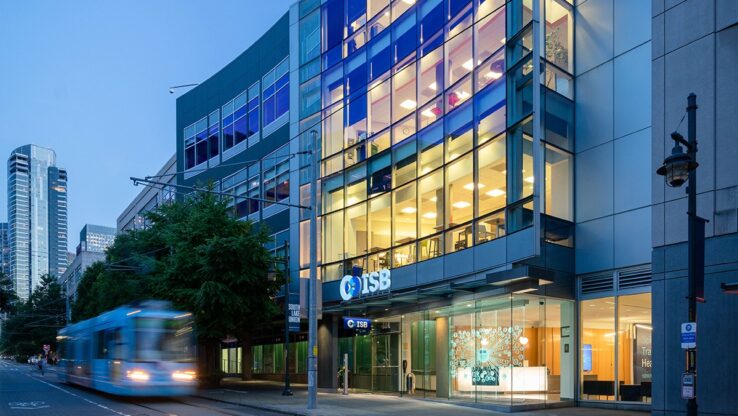Help Us Fight
Coronavirus
You can support our groundbreaking COVID-19 research by making a contribution today.
 heath.isbscience.org/2021/01/28/how-will-healthcare-and-scientific-research-be-different-in-a-post-pandemic-world/
heath.isbscience.org/2021/01/28/how-will-healthcare-and-scientific-research-be-different-in-a-post-pandemic-world/COVID-19 vaccines are one of the most pressing issues facing healthcare systems, both in the United States and around the world. Appropriately, they were a major topic of discussion at a recent ISB-Town Hall Seattle science series event featuring two leaders in healthcare and science.
Providence President and CEO Dr. Rod Hochman joined ISB President and Professor Dr. Jim Heath for an hour-long conversation about how healthcare and science will be different in a post-pandemic world.
“I define the world into BC, DC and AC,” Hochman said. “Before COVID, during COVID and after COVID.” The three areas greatly reflect on policy and how we’re going to get an enormous amount of people vaccinated.
“The last time we’ve done mass vaccinations (in America) was 70 years ago for polio,” Hochman said, and said we can learn best practices from the developing world. “The current state of vaccines is chaotic, to say the least.”
Hochman, who recently assumed the role of board chair of the American Hospital Association, said mass vaccinations in the U.S. is achievable, and that there should be 2 million Americans getting vaccinated each day. (Currently, there are fewer than 1 million per day.)
He said this huge logistical problem needs to be addressed in several ways:
Even with this multifaceted plan, there’s still the issue of personnel delivering the vaccines. “Mobilize National Guard folks, retired doctors, retired nurses … I’m willing to do a shift at 3 in the morning. I still have my license,” he said.
Heath, who co-leads the COVID-19 Immune Response Study, discussed how the pandemic has changed the research arena, specifically how clinical trials are conducted.
Prior to COVID-19, “one challenge characterizing many clinical studies is you get a certain patient demographic that doesn’t represent the demographic that will be your ‘customers.’ We’ve developed technology to allow us to distribute healthcare away from brick-and-mortar systems, giving access to patient demographics you normally wouldn’t access.”
He added that this approach can be applied in cancer trials, multiple sclerosis trials, and more. It’s about designing trials that send the medical system to patients.
In 2019, Providence saw 70,000 virtual visits. In 2020, they saw 1.7 million. “Virtual visits are here to stay,” Hochman said, but highlighted that there’s nothing like the human touch.
“Using both elements, virtualization with in-touch, we’ll have a better health system as we move forward.”
Providence’s health network consists of 120,000 employees serving 51 hospitals, 1,085 clinics, and a comprehensive range of health and social services across Alaska, California, Montana, New Mexico, Oregon, Texas and Washington. ISB affiliated with Providence in 2016.
ISB and Town Hall Seattle have put on a number of virtual events focusing on a range of important scientific issues: STEM policy and advocacy, the politics of immunization, mining sewage to track population health, creating new senses for humans, and more. We will continue creating compelling events. To make sure you know of upcoming conversations, please follow us on Facebook, Twitter, LinkedIn and Instagram, and be sure to sign up for our newsletter and event updates.
You can support our groundbreaking COVID-19 research by making a contribution today.
Infection, autoimmunity and cancer account for 40 percent of deaths worldwide. In a Cell Reports paper, ISB researchers detail how the human immune system works in common ways across diseases – findings that offer promising avenues for exploring multi-disease therapeutic strategies.
In a breakthrough discovery that changes how we understand T cells and with implications of how we can better engineer custom immune responses to fight disease, Institute for Systems Biology researchers showed that the different disease-fighting functions of different T cells are determined by the genetically encoded T-cell receptor sequence that are unique to those cells.

Throughout 2023, ISB research has been published in impactful peer-reviewed journals and our scientists have been featured in major media outlets and popular podcasts. In this 2023 Year in Review, we showcase some of our most important and interesting highlights of the year.